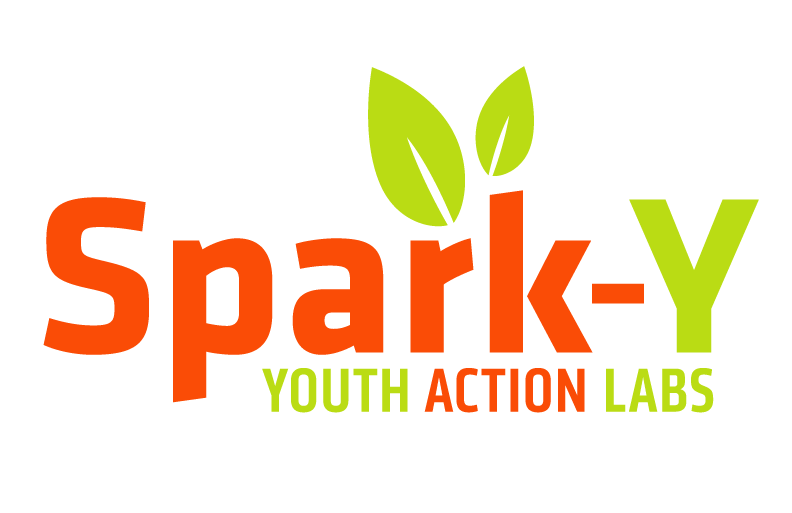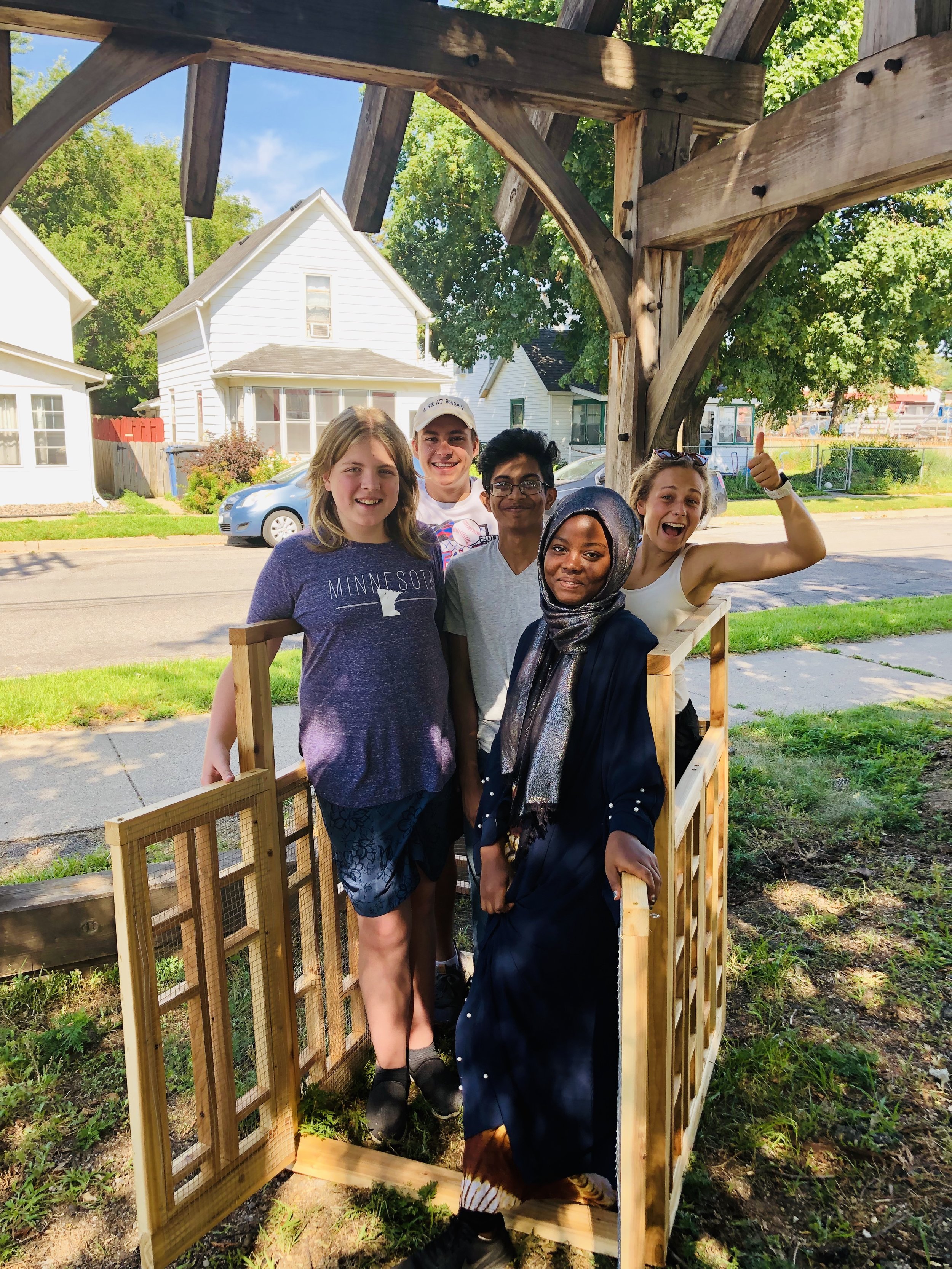The following blog post was written by Spark-Y 2019 Summer Internship Casket Arts Team:
Umulkheir Abdinoor, Raiyyan Ahmed, Sarah Anderson, Nicolas Campion, and Piper Lepine.
As urban areas continue to expand in Minneapolis, green space is becoming more scarce. In turn, bee population decline and a cascade of environmental issues follow. To combat this, our internship team has been working hard to construct several pollinator houses, a compost bin, and two planter beds to enhance the green space surrounding the Casket Arts Building. In doing so, we have gained valuable skills involving teamwork, construction, communication, and so much more.
Pollinator Houses
Our first project this summer has been designing and building pollinator houses which will hang in trees outside of the Casket Arts Building. These pollinator homes target the native solitary bee population. Interestingly, of the 400 + bee species native to Minnesota, only 2% colonize in hives. Therefore, the majority of species are solitary bees. They work independently to gather their own pollen and nectar, as well build their own nest to lay eggs. In more developed areas, solitary bees struggle to find places to nest which contributes to population decline. Thus, the implementation of pollinator houses is important for sustaining native bees species. Check out our neat triangular design and stop by the open house to learn how you can make your own!
Pollinator Houses
Compost Bin
Our second project has been constructing an outdoor compost bin for the Casket Arts Building and community members to utilize. Everyday, large portions of food scraps and yard waste end up in landfills which emit problematic greenhouse gases such as methane. However, by composting organic matter, carbon emissions are reduced and nutrients are harvested in the soil. Accordingly, a rich soil containing beneficial fungi and bacteria is generated. Thus, the implementation of a communal compost will reduce methane emissions and provide rich soil for Spark-Y’s Urban Agriculture Lab. Additionally, we are working with a local artist to design a sign to complement the bin!
Compost Bin
Planter Beds
Our third project has been constructing two planter benches for the Casket Arts Building. These beds provide 64 square feet of garden space, and also serve as a seating area for community members. We plan to fill the beds with Minnesota native pollinator plants, with hopes of growing fresh produce in future seasons. The implementation of native pollinator plants serves as a valuable food source for local bees, especially those living in our Pollinator houses mentioned above.
Planter Beds
Team Member Highlights:
Umulkheir Abdinoor - “I have enjoyed learning how to build things, design things, and how to run my own business.”
Raiyyan Ahmed - “I loved how hands on this internship was and I wouldn’t change the experiences I gained this summer for anything else.”
Sarah Anderson - “This internship has taught me valuable project management, leadership, and building skills that will help me in future paths of life. I am excited about the local impact our project will have and grateful for my overall Spark-Y experience.”
Nicolas Campion - “This experience has opened my eyes to the world of pollinators and how important they are in our everyday life. By working to provide resources for our native pollinators, we can foster an environment that supports all types of plant and wildlife.”
Piper Lepine - “Being my first job, this internship did an amazing job of teaching me what it is like to be in the workforce and I will be able to take my experiences to my future jobs.”





